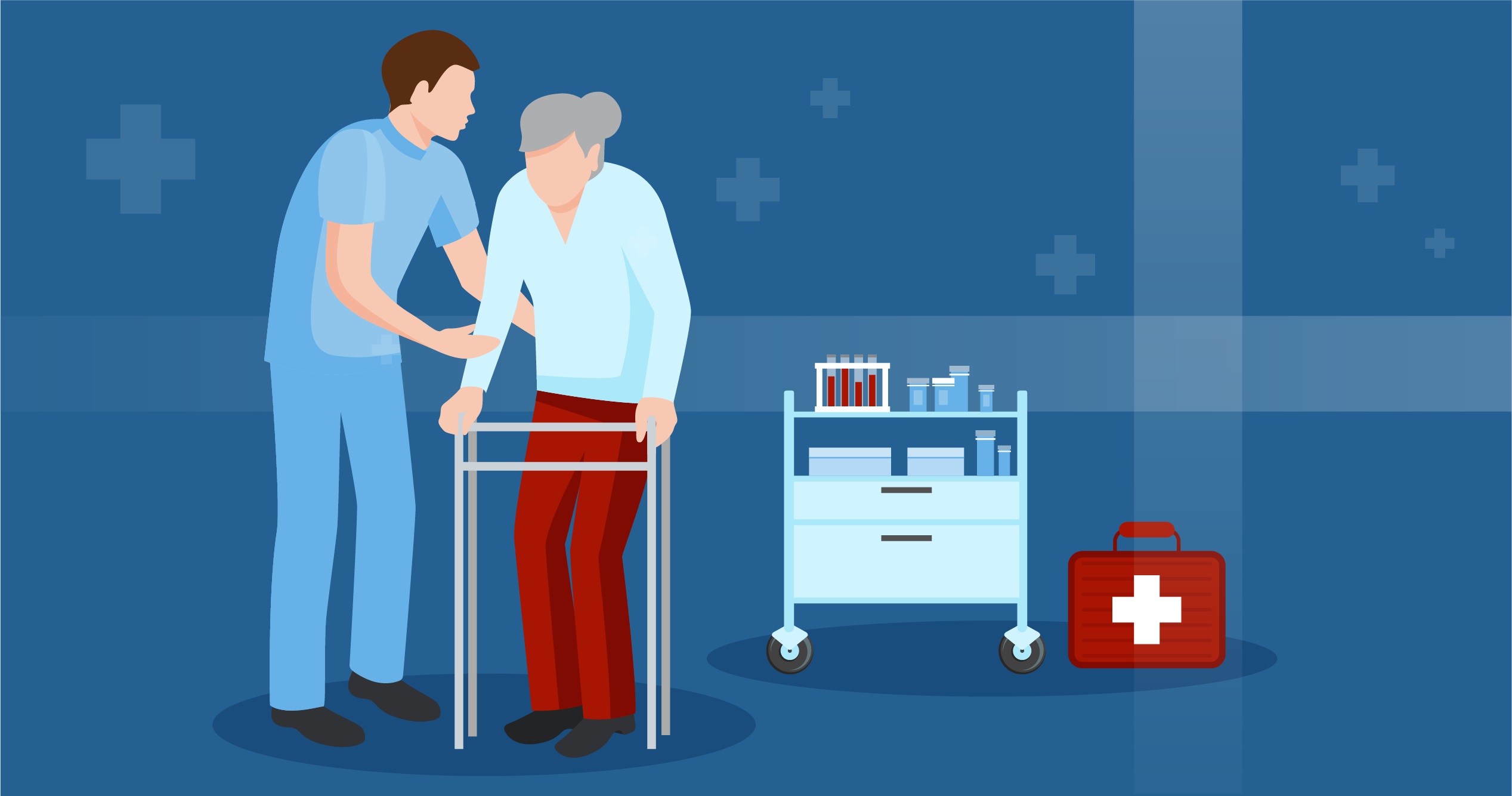blog


When it is no longer possible to cure a serious illness or a patient decides to discontinue treatment, a patient may choose to initiate hospice as a solution for end-of-life care. Every type of hospice care is appropriate when an “illness is not responding to medical attempts to cure it or to slow the disease's progress” (NIH, 2017). The focus in hospice care is on the patient’s comfort and on support for family members and any involved caregivers. Any attempt to cure an illness is stopped. Typically, “Hospice is provided for a person with a terminal illness whose doctor believes he or she has 6 months or less to live if the illness runs its natural course” (NIH, 2017).
All types of hospice care bring together “a team of people with special skills—among them nurses, doctors, social workers, spiritual advisors, and trained volunteers. Everyone works together with the person who is dying, the caregiver, and/or the family to provide the medical, emotional, and spiritual support needed” (NIH, 2017). It is provided “in two types of settings—at home or in a facility such as a nursing home, hospital, or even in a separate hospice center” (NIH, 2017). For any hospice patients, regardless of setting, professional assistance is always available by phone or in person.
The Different Levels of Hospice Care
Patients in hospice care may need differing hospice levels of care, as the impact of disease progresses or their health condition worsens. These levels are:
Routine Hospice Care – This most common level of hospice care involved care of the patient at his or her residence, whether a private residence, assisted living facility, or nursing facility.
General Inpatient Care involves pain control or other acute symptom management that requires an inpatient setting. It typically begins when other efforts to address symptoms become ineffective. This care can be provided in a Medicare certified hospital, hospice inpatient facility, or nursing facility that has registered nursing staff available 24 hours a day for direct patient care.
Continuous Home Care is provided between 8 and 24 hours a day to manage pain and other acute symptoms. These home care services must be mostly nursing care, supplemented with caregiver and hospice aide services to assist a terminally ill patient remain at home during a pain or symptom crisis.
Inpatient Respite Care is provides temporary relief to a primary caregiver and can be provided in a continuum care hospice, hospital, hospice facility, or a long term care facility that has nursing personnel present on all shifts to meet a patient’s needs are met. Respite care is only provided for a maximum of five consecutive days (NHPCO, 2012).
The Impact of Hospice Care on Caregivers at Home
The caregiver for someone receiving hospice care at home has many responsibilities, from medical care and around-the-clock attention for the patient to taking care of the household and self-care. Hospice care supports caregivers in multiple ways, from assistance with tasks and errands, respite care to give caregivers a break, patient care for medications and activities of daily living, and counseling. Hospice often also prepares caregivers with end-of-life care education about what to expect as a disease state progresses, leading to death, as well as grief counseling for caregivers experiencing the emotional impact of a loved one’s passing (CRHCF, 2016).
The Cost of Hospice Care
Given that most hospice patients are older, their care is often covered by Medicare, which offers multiple hospice benefits. Importantly, “For those who are certified as terminally ill with a life expectancy of less than six months, the program covers hospice services entirely” (LaPonsie, 2018). The catch is that recipients of this care have to forego any curative treatment—“In other words, the only care provided by hospice is for comfort; it's not intended to cure an illness or prolong life” (LaPonsie, 2018). For those without Medicare coverage, Medicaid or private insurance may cover this care. Similarly, “these options typically provide coverage at little to no out-of-pocket cost to patients” (LaPonsie, 2018).
According to AginginPlace.org, “If you do not have insurance coverage and cannot afford hospice, some hospices may provide care free of charge or on a sliding scale basis. This financial assistance is provided through donations, gifts, grants or community sources. There are also nonprofit organizations that can help these individuals” (AginginPlace.org, 2019).
References
AginginPlace.org, “Hospice Care,” 2019, Retrieved at https://www.aginginplace.org/hospice-care/.
CRHCF (Crossroads Hospice Charitable Foundation, “How Does Hospice Provide Care at Home?” June 24, 2016, Retrieved at https://crhcf.org/insights/how-does-hospice-provide-care-at-home/.
LaPonsie, Maryalene, “The Costs of Entering Hospice Care,” U.S. News & World Report, November 1, 2018, Retrieved at https://money.usnews.com/money/personal-finance/family-finance/articles/2018-11-01/the-costs-of-entering-hospice-care.
NHPCO (National Hospice and Palliative Care Organization), “Hospice Levels of Care,” 2012, Retrieved at https://www.nhpco.org/sites/default/files/public/Statistics_Research/Hospice_Levels_of_Care.pdf.
Learn more about HealthStream workforce development solutions for hospice care.
HealthStream’s learning management system and healthcare training solutions support medical training initiatives and allow for the best patient care.
View All Learning & PerformanceExpand the decision-making skills and effectiveness of your healthcare workforce with HealthStream's workforce development programs and services.
View All Clinical DevelopmentComprehensive, industry-leading provider onboarding and credentialing software that validates health outcomes and supports provider assessment.
View All CredentialingMake sure your healthcare staff can schedule out appointments and work schedules with ease using our line of nurse scheduling software solutions.
View All SchedulingWhen you enact HealthStream's quality compliance solutions, you can do so with the confidence your healthcare organization will meet all standards of care.
View All Quality & ComplianceUtilize patient access solutions and advanced reimbursement solutions to manage clinical denials and improve your organization’s reimbursement strategy.
View All ReimbursementLearn about our advanced resuscitation training solutions. Our solutions are designed to help improve patient outcomes.
View All Resuscitation